The Kerala state government (southern India) said on the evening of September 13 that at least 706 people, including 153 medical staff, were being tested for the Nipah virus.
Two people infected with the virus have died since August 30 in the fourth outbreak in Kerala since 2018. Two adults and one child infected with the virus are currently being treated in hospital.
The first patient was a small banana and areca nut farmer in the village of Kozhikode, Kerala. The village is located near a vast forest that is home to many bat species, including fruit bats – the species that tested positive for Nipah in a 2018 virus hunt.
The victim's daughter and brother-in-law have both been infected and are currently quarantined in hospital. Meanwhile, other family members and neighbors who were in close contact with the victim are being tested to check the extent of the virus spread.
The second death had no close connection to the first victim. Initial investigations suggest they came into contact at the hospital where they both attended treatment.
"We are focusing on rapidly tracing those who have come into close contact with the infected person and isolating anyone who has symptoms," Kerela state Health Minister Veena George said.
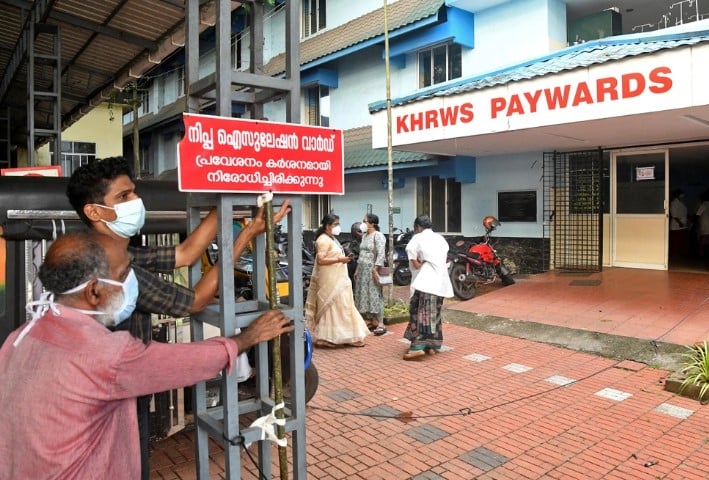
Nipah virus isolation ward at a hospital in Kozhikode district, Kerala state, India (Photo: Reuters).
The Kerala state government has decided to suspend the operations of several schools, offices and public transport and imposed a lockdown in at least eight villages in Kozhikode district in an effort to contain the spread of the virus.
Veena George said public transport has been restricted in some areas of the state to prevent a possible health crisis. Antiviral drugs and monoclonal antibodies are being used to treat three infected people. Other strict quarantine regulations are also in place. Medical staff who have come into contact with infected people need to be quarantined in hospitals.
Neighbouring Tamil Nadu state has issued a notice that visitors from Kerala will be subjected to medical screening and those showing flu symptoms will be quarantined.
Scientists first identified the Nipah virus in 1998 during an outbreak among pig farmers in Malaysia and Singapore, according to Reuters . The outbreak caused significant economic impact as more than 1 million pigs were culled to control the disease.
Although there have been no other Nipah virus outbreaks in Malaysia and Singapore since 1999, cases have since been reported almost annually in some parts of Asia – mainly Bangladesh and India.
In a statement in 2020, the US Centers for Disease Control and Prevention (CDC) explained that Nipah virus is a virus that is transmitted from animals to humans. The host of Nipah virus is fruit bats (genus Pteropus), also known as fruit bats.
The virus can be transmitted directly to humans through contact with bodily fluids of infected bats and pigs. Other cases of transmission from humans have been documented.
To date, there is no vaccine to prevent or cure the virus once infected. The disease has a mortality rate of up to about 70%. Treatment is usually supportive care to treat symptoms.
The World Health Organization (WHO) said that those infected in the early stages of the disease show symptoms including fever, respiratory distress, headache and vomiting. Encephalitis and seizures can also occur in severe cases, leading to coma within 24 to 48 hours.
WHO lists Nipah virus as a research and development pathogen with pandemic potential.
Before the cases in India this week, Nipah had emerged in three outbreaks. The first, in 1998, in Malaysia and Singapore, killed more than 100 people and infected nearly 300. Since then, Nipah has spread thousands of miles, with a fatality rate ranging from 72 to 86 percent.
A second outbreak occurred in 2001 in India and Bangladesh, killing 62 of the 91 people infected. In 2018, an outbreak in Kerala killed 21 people. A Reuters investigation in May found Kerala to be among the places most at risk of bat virus outbreaks globally.
Based on experience in previous outbreaks, regular and thorough cleaning and disinfection of pig farms with appropriate detergents can be effective in preventing disease.
In the event of an animal outbreak, WHO recommends that production facilities destroy infected animals and strictly control the incineration or burial of animal carcasses to reduce the risk of transmission to humans.
In the absence of a specific vaccine for Nipah virus, raising awareness of risk factors and prevention measures is a top priority. To avoid transmission through fruit and vegetables contaminated with bat bodily fluids, wash and peel them before eating. Any fruit that shows signs of bat feeding should be discarded.
Minh Hoa (reported by Tin Tuc Newspaper, Dan Tri)
Source


![[Photo] Many streets in Hanoi were flooded due to the effects of storm Bualoi](https://vphoto.vietnam.vn/thumb/1200x675/vietnam/resource/IMAGE/2025/9/29/18b658aa0fa2495c927ade4bbe0096df)


![[Photo] National Assembly Chairman Tran Thanh Man chairs the 8th Conference of full-time National Assembly deputies](https://vphoto.vietnam.vn/thumb/1200x675/vietnam/resource/IMAGE/2025/9/29/2c21459bc38d44ffaacd679ab9a0477c)
![[Photo] General Secretary To Lam receives US Ambassador to Vietnam Marc Knapper](https://vphoto.vietnam.vn/thumb/1200x675/vietnam/resource/IMAGE/2025/9/29/c8fd0761aa184da7814aee57d87c49b3)
![[Photo] General Secretary To Lam attends the ceremony to celebrate the 80th anniversary of the post and telecommunications sector and the 66th anniversary of the science and technology sector.](https://vphoto.vietnam.vn/thumb/1200x675/vietnam/resource/IMAGE/2025/9/29/8e86b39b8fe44121a2b14a031f4cef46)
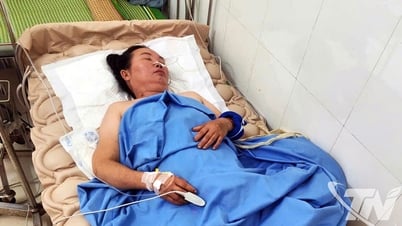

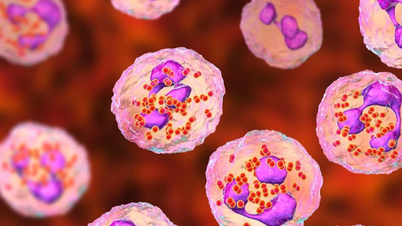

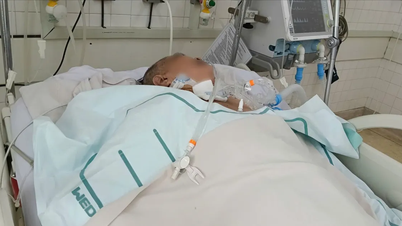











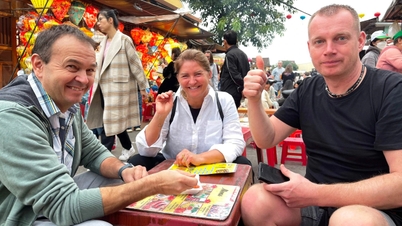
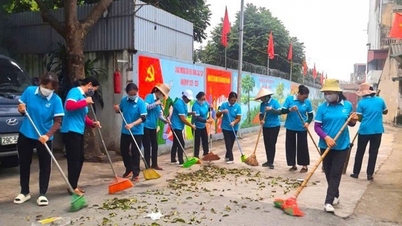
























































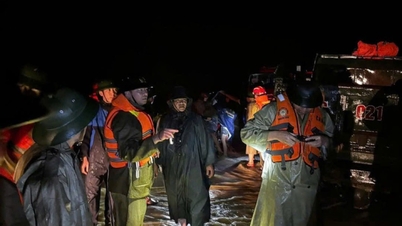




















Comment (0)